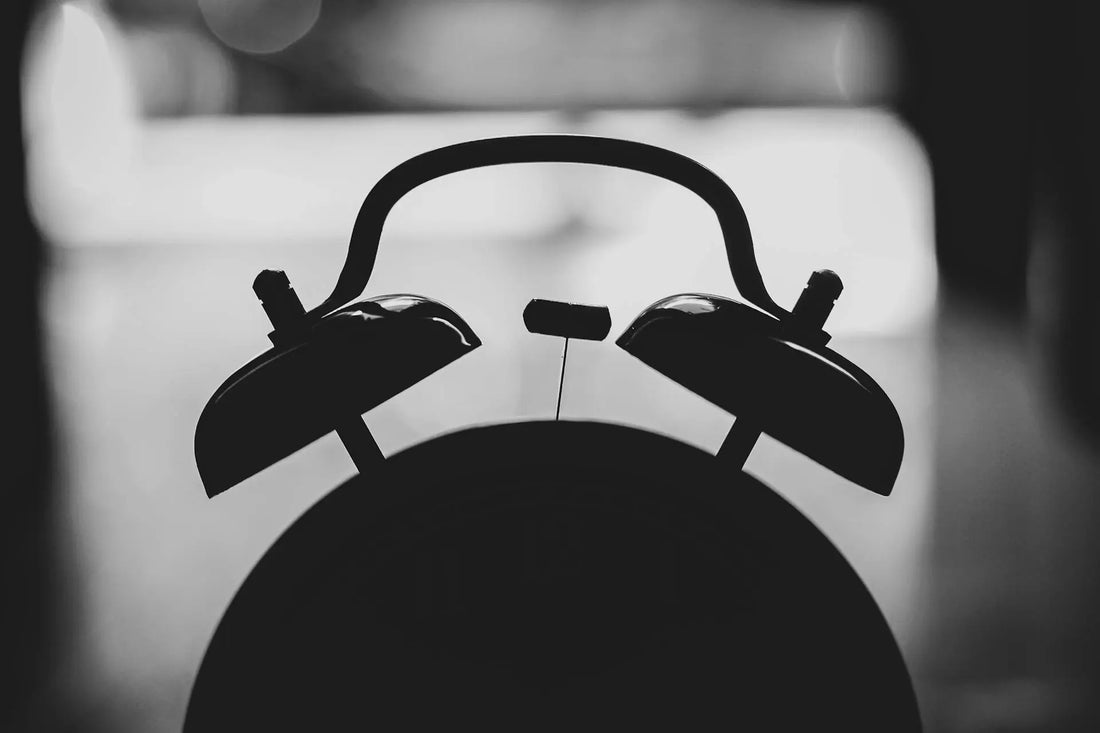
The Awakenings
Getting up in the morning is a simple act, but for many, it’s one of the biggest challenges of the day. Choosing the right alarm clock can make a significant difference in how we start our days. In this blog, we’ll explore the different types of alarm clocks , their fascinating history, and how to choose the perfect alarm clock for you and your family.
The History of Awakenings
The concept of waking people up at a specific time dates back to ancient times. Early devices of this type were often based on natural mechanisms , such as the crowing of roosters or the call of night watchmen. However, mechanical alarm clocks as we know them today did not come into existence until the 18th century.
The first patented mechanical alarm clock was invented byLevi Hutchins in 1787. This alarm clock was set to go off at 4 a.m., simply because that was the time Hutchins wanted to get up. It wasn't until 1876 that watchmaker Seth E. Thomas patented the first adjustable alarm clock, allowing users to choose their own wake-up time.

Types of Alarm Clocks
Today, the alarm clock market is diverse, offering a multitude of choices to meet specific needs.
A. Analog alarm clocks
Analog alarm clocks are the most traditional, with hands to indicate the time. They are often preferred for their simplicity and vintage aesthetic. In addition, they do not produce blue light, which is beneficial for those who are sensitive to this light during the night.
B. Digital alarm clocks
Digital alarm clocks display the time in numbers, providing a quick and accurate reading . Many modern models include additional features such as radio, natural sounds for waking up, and USB ports for charging mobile devices.
C. Light alarm clocks
These light alarm clocks use light to simulate a sunrise, helping to wake users up more naturally. They are especially useful for those who have trouble waking up during the winter months or in areas where natural light is scarce.
D. Children's alarm clocks
Kids' alarm clocks are designed to be both fun and educational. They often come with features like night lights, soothing sounds, and smiley faces to indicate when it's time to get up.
E. Smart alarm clocks
Smart alarm clocks are the latest in alarm clock technology. They often connect to smartphone apps , allowing for remote control and personalized settings. Some models include features like sleep tracking, sleep cycle analysis , and even alarms that adapt to your sleep cycles to wake you up at the optimal time.

How to Choose the Perfect Alarm Clock
Choosing an alarm clock depends on several factors, including your lifestyle, personal preferences, and even medical needs.
A. Consider your sleep cycle
Understanding your sleep cycle is essential to choosing the right alarm clock. For example, if you have irregular sleep cycles , a smart alarm clock with a sleep tracking feature can be beneficial . It will adjust the wake time based on your sleep cycle, waking you up at an optimal time to minimize drowsiness .
B. Wake-up sounds
The type of sound you choose to wake up to can influence your mood for the rest of the day . Some people prefer natural sounds like birdsong or the sound of waves, while others find traditional alarms more effective at waking them up .
C. Specific features
Some alarm clocks offer additional features like USB ports, built-in radios , or night lights. If you like to listen to music in the morning, an alarm clock with a built-in radio might be a good choice. Likewise, if you need to charge your devices overnight, an alarm clock with a USB port might be convenient.
D. Design and aesthetics
The design of the alarm clock can also be a deciding factor . Some prefer a vintage look, while others opt for modern and sleek designs . It is important to choose an alarm clock that not only meets your functional needs but also fits well into your living space.
The Impact of Alarm Clocks on Health
The type of alarm clock you choose can impact your overall health. Light alarm clocks, for example, can help regulate your circadian rhythm , which is crucial for good mental and physical health . Additionally, choosing a gentle alarm can reduce the stress and anxiety associated with waking up abruptly.
A. Light and sleep
Exposure to light, or the lack thereof, plays a crucial role in regulating our sleep cycle. Light alarm clocks can simulate sunrise, helping to regulate the production of melatonin , a hormone that controls sleep. This type of alarm clock is especially beneficial for those who live in areas with little natural light in the winter.
B. Sound and stress
The type of sound used to wake you up can also affect your stress levels. Soft, natural sounds are generally less stressful than loud, abrupt alarms. For those who are particularly sensitive to noise, there are vibrating alarm clocks or silent alarm clocks with flashing lights.
C. Awakenings and sleep disturbances
People with sleep disorders like insomnia or sleep apnea may benefit from specialized alarm clocks. For example, some smart alarm clocks can monitor sleep cycles and adjust the wake time accordingly to minimize discomfort.

Alarm Clocks for Kids: Education and Fun
Children have specific sleep needs, and choosing the right alarm clock can help establish good sleep habits from an early age. Kids' alarm clocks are often colorful, with cartoon characters or fun lights to catch their attention .
A. Learning about time
Some kids' alarm clocks are designed to help young children learn to tell time. They may include visual elements like changing colors or pictures that indicate whether it's time to get up or stay in bed.
B. Night lights
Built-in night lights can help kids feel safe in their room. Some alarm clocks even offer soothing sounds or stories to help kids fall asleep.
C. Accountability
As children get older, they may begin to use alarm clocks to help them get up on time for school, developing a sense of responsibility. Alarm clocks can also be used to manage playtime and daily activities.

Maintenance and durability of alarm clocks
Like any other electronic device, alarm clocks require some maintenance to ensure their longevity.
A. Cleaning
It is important to clean your alarm clock regularly, especially the screen and buttons, to prevent dust and dirt from accumulating. Use a soft, dry cloth to clean the exterior and follow the manufacturer's instructions for any internal cleaning.
B. Changing batteries
If your alarm clock runs on batteries, make sure to replace them regularly to prevent your alarm clock from suddenly stopping. Some alarm clocks have low battery indicators to remind you when it's time to change the batteries.
C. Software Updates
For smart alarm clocks, it is crucial to keep the software up to date to benefit from the latest features and security patches . Check for updates regularly via the companion app.
Conclusion
Choosing an alarm clock may seem simple, but it can have a significant impact on your daily life. Whether it’s waking up gently with a light alarm clock or empowering your kids with a fun alarm clock, there are a wide range of options to suit every need. By understanding the different types of alarm clocks and their features, you can make an informed choice that will help you start each day off right.
Ultimately, the perfect alarm clock is the one that best fits your lifestyle and personal preferences. So whether you’re an early riser or a night owl, there’s an alarm clock waiting to make your mornings a little sweeter and your days a little brighter.






